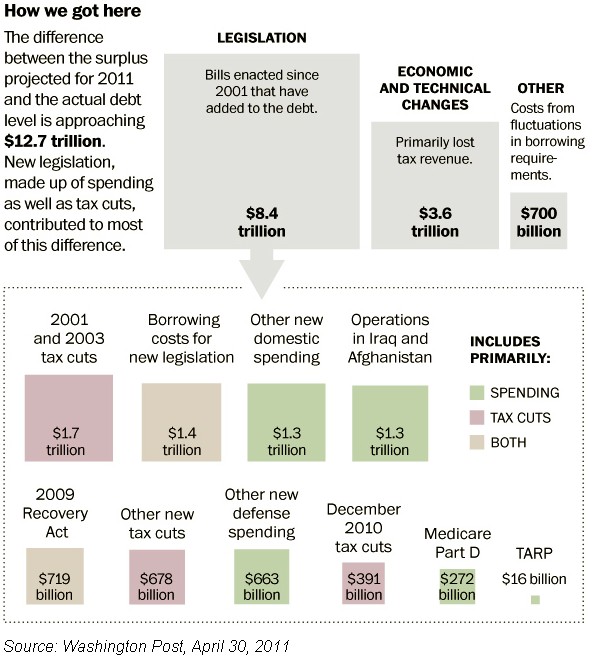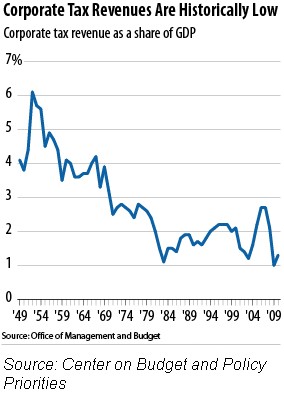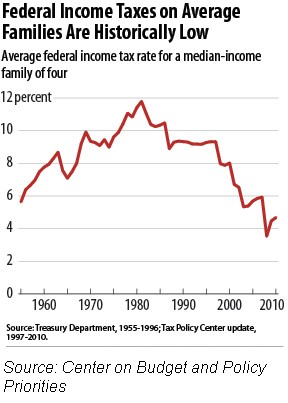Yes, Speaker Boehner, There is a Revenue Problem
by Craig Jennings, 5/10/2011
Yesterday, after a speech on his preferred course of action on raising the debt ceiling, House Speaker John Boehner (R-OH) said that "We do not have a revenue problem. We have a spending problem."
Actually, the Speaker has a math problem.Federal budget deficits, by definition, mean that the government failed to collect revenue equal to or greater than the amount spent by the federal government.
Mr. Boehner might have a leg to stand on rhetorically–not mathematically–if over the past 10 years the $12.7 trillion change in federal deficits were accompanied with steady or increasing revenues. But they weren't.
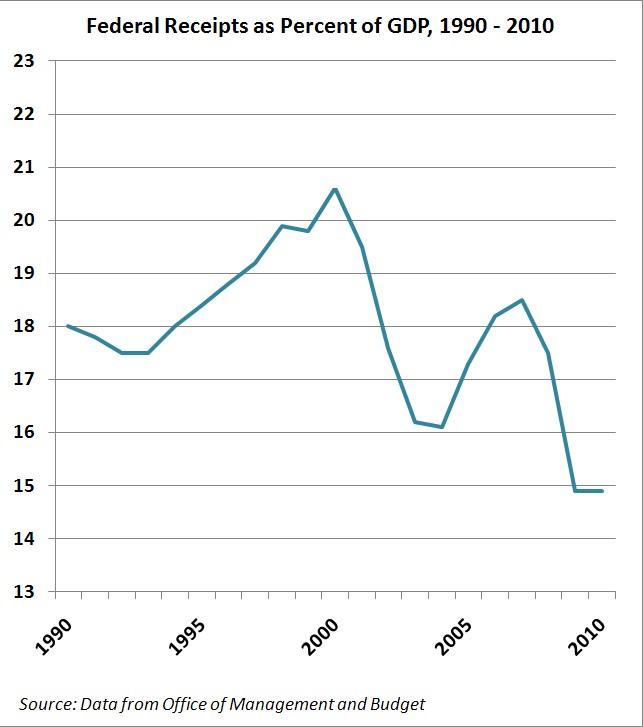
Since 1990, federal revenues have been reduced sharply. Instead, as the chart below shows, large chunks of the current national debt are attributed to several trillion dollars in tax cuts, namely the 2001-2003 tax cuts.
Between the Bush tax cuts and the revenue loss due to the Great Recession, federal revenues are at a 50 year low.
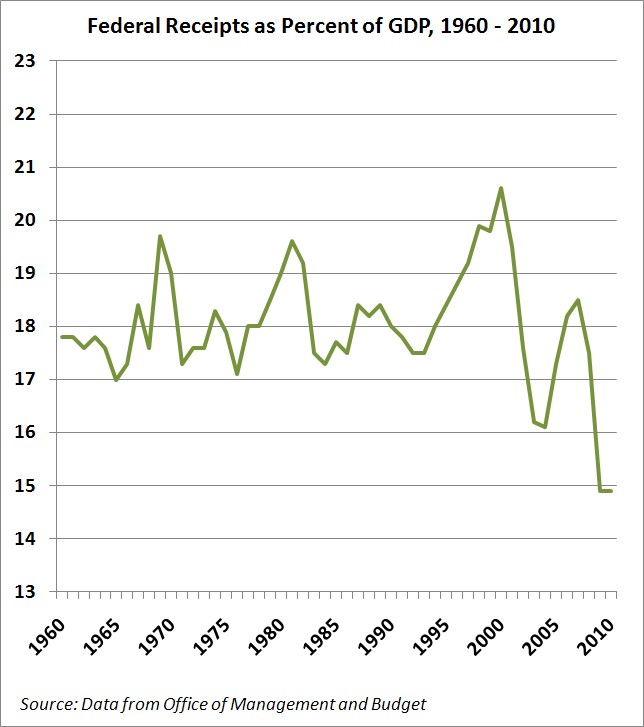
This, of course resulting from revenues from both corporations and individuals dropping to historically low levels.
I'm not sure how a member of the United House of Representatives could miss this notable development in the nation's finances, but the plain fact of the matter is that federal spending increases accompanied by a large drop in revenues is the story behind the deficit. Saying otherwise is simply wrong.




